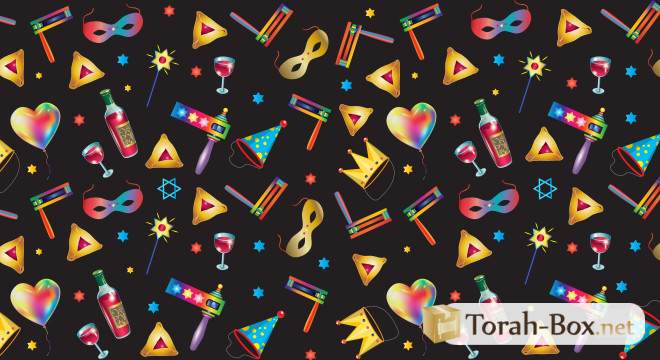
Purim
What Do We Really Celebrate on Purim?
We celebrate the Purim Festival on the 14th of Adar. Why on this date precisely? Explanations and clarifications follow: Haman, the most influential minister of King Achashverosh (Ahasuerus) of Persia and Medes, concocted the fatal project of destroying the Jewish people. To achieve this end, he sent letters to all the provinces of the Kingdom.
The missives stipulated that on the 13th of Adar, everyone was entitled to shed the blood of the Jews freely at their whim, including children, women and the elderly. Whoever so desired was free to destroy, exterminate and annihilate all the Jews and lay a hand on their property (Esther 3, 13). What Hitler planned to do systematically in a few-year project, Haman conspired to achieve in a single day. In the end, this satanic plan was foiled by a series of inordinate events.
Mordechai, the delegate of the Jews in the royal court and his niece, Queen Esther, was involved in the course of these events. Thankfully, with the Almighty’s intervention, the wheel of fortune was reversed and the Jews were allowed to overthrow their enemies. Indeed, on the 13th of Adar, the Jews reported a great victory and triumphed over those who planned to exterminate them.
In memory of this miracle, the festival of Purim was instituted for all generations to come. The Purim festival is celebrated yearly by the Jewish people around the world on a day of exceptional joy and celebration. An interesting detail relates to the date we celebrate this festival: the 14th of Adar. Indeed, we witnessed that this victory transpired on the 13th of Adar and not on the 14th. So why don’t we mark the Purim festival on the 13th, as opposed to the 14th of Adar, the next day?
We know that Purim is celebrated in Jerusalem on the 15th of Adar because, in the capital of Shushan, the battles continued for two additional days. The victory transpired on the 14th of Adar and it was decided that any city encircled by walls like Shushan and Jerusalem would celebrate Purim on the 15th of Adar, instead of on the 14th. This enacts a principle which has been maintained by the Jewish People from time immemorial to mark the celebration of a victory against our enemies. What prompted the Sages of the time to anchor the festival on the "the days Jews had “been granted a remission from their enemies” and not on the day “they vanquished their enemies?”
The reason for this principle displays the essence of the Torah of the Jewish People. Jews avoid celebrating military victories. Judaism, on the advice of its wise men, does not mark these victories: "When your enemy falls, do not rejoice! ". We do not rejoice in the downfall of our enemies, even the most dangerous and cruelest enemies, threatening the very core of our existence. Our joy is celebrated on the basis of an entirely different dimension. We praise and thank God for saving us. The festival of Purim manifests this approach, as evidenced by Judaism’s characterization of other holidays.
The festival of Pesach is named after one verse in the Torah: "When your children ask you, what does this ritual mean to you? You will answer: it underlines the Paschal sacrifice offered to God, who spared (Passach) the homes of the B'nai Israel in Egypt when he struck the Egyptians to preserve our families. "(Bo, 12, 26-27) This message must be passed onto future generations. The festival’s name does not allude to the heavy losses suffered by the Egyptians during the plague of the firstborn. Nor does it celebrate the memory of the drowning of the Egyptian army in the Sea of Reeds, which no Egyptian survived. The festival’s name was set according to the miracle of our rescue and does not mention the death of the Egyptians.
Why do we light candles on Hanukkah? When the Temple was redeemed from Greek rule, a flask of pure oil was found to light the Menorah for a single day. A miracle transpired and the candles of the Temple’s Menorah burned for eight days. One question calls for an explanation: what is the relationship between these candles and the victory of the Maccabim? Here too, the same principle applies. The miracle of the "flask of oil" and the lighting of the candles symbolize the festival of Hanukkah. No military parades nor ceremonies to remember the heroes of our nation. According to this school of thought, the meaning attributed to the holiday and date set for its celebration was established. Any victory is short-lived, and therefore, the Jewish Sages refuse to commemorate war triumphs.
Their purpose is to commemorate rescue and survival. The war against the Greeks was fundamentally a struggle against the imposition of Greek culture. The candles of the Beit Hamikdash symbolize the wisdom of the Torah, and above all, the retrievement of Israel's Torah from the grip of a culture that schemed to eradicate it.
The Romans, as well as the French and many other Nations, created porticos to commemorate their victories. The Jewish People, on the other hand, do not celebrate military triumphs, but rejoice over the rescue of a People, its survival and continuity over thousands of years, despite the misfortunes and evil decrees pronounced against them. The Jewish People’s rescue and liberation are only possible through the Torah.
Torah-Box.net Account
To access the entire Torah-Box.net website, sign up for free in less than a minute.
Weekly Parsha
 Candle Lighting - New York
Candle Lighting - New York
Friday December 19th, 2025 at 16:13 *Shabbat ends at 17:17 *
change my location
* Times given as an indication, check the times of your community











